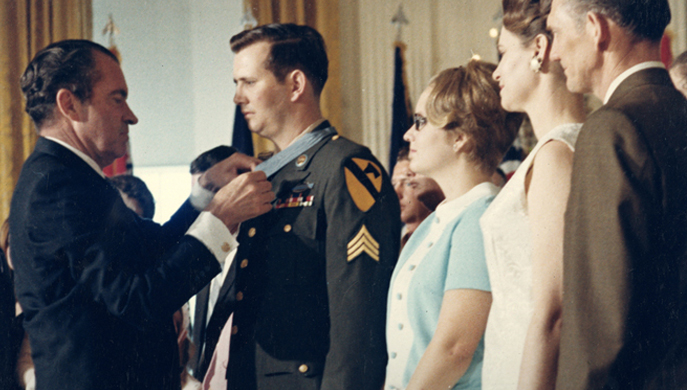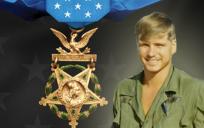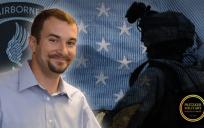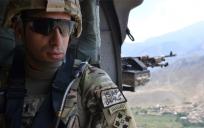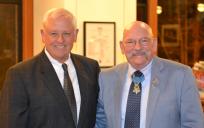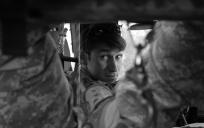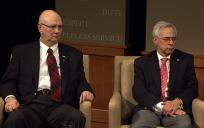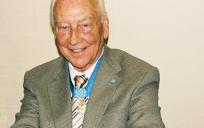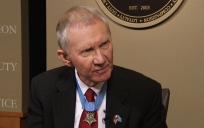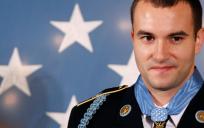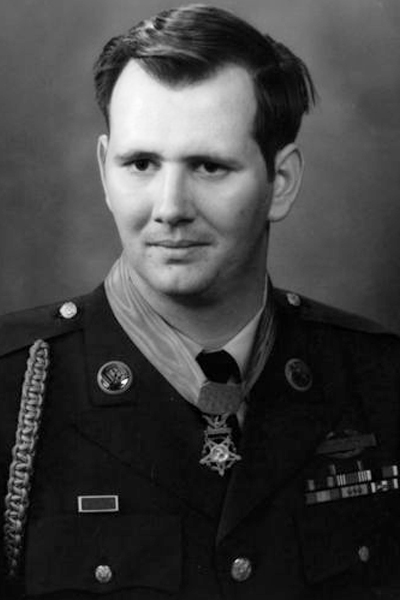
Record date:
Medal of Honor Recipient Allen J. Lynch Interview
To his fellow soldiers, Illinois native Allen Lynch is a hero; to the enemy force that ambushed his battalion in the Central Highlands of Vietnam, he was a nightmare.
On December 15th, 1967, Lynch and the rest of his platoon were on their way back for a well-deserved rest when they were called in to support another company that had been outnumbered by an enemy force. Under intense fire, Lynch carried three wounded soldiers to safety, and single-handedly defended them against the advancing enemy force for several hours. His quick-thinking and disregard for his own safety were vital in saving those lives, but his fight on behalf of his fellow soldiers did not end on the battlefield. After leaving active duty, Lynch worked for several years in the Veterans Administration, advocating for increased benefits for disabled veterans, and served most recently as chief of the Veterans Rights Bureau for the Illinois Attorney General's Office. Now retired, he continues that commitment as a volunteer with the Vietnam Veterans of America and does ministry work with the Lake County Jail.
His Citation Reads:
For conspicuous gallantry and intrepidity in action at the risk of his life above and beyond the call of duty. SGT Lynch (then SP4) distinguished himself while serving as a radio telephone operator with Company D. While serving in the forward element on an operation near the village of My An, his unit became heavily engaged with a numerically superior enemy force. Quickly and accurately assessing the situation, SGT Lynch provided his commander with information which subsequently proved essential to the unit's successful actions. Observing three wounded comrades Lying exposed to enemy fire, SGT Lynch dashed across 50 meters of open ground through a withering hail of enemy fire to administer aid. Reconnoitering a nearby trench for a covered position to protect the wounded from intense hostile fire, he killed two enemy soldiers at point blank range. With the trench cleared, he unhesitatingly returned to the fire-swept area three times to carry the wounded men to safety. When his company was forced to withdraw by the superior firepower of the enemy, SGT Lynch remained to aid his comrades at the risk of his life rather than abandon them. Alone, he defended his isolated position for two hours against the advancing enemy. Using only his rifle and a grenade, he stopped them just short of his trench, killing five. Again, disregarding his safety in the face of withering hostile fire, he crossed 70 meters of exposed terrain five times to carry his wounded comrades to a more secure area. Once he had assured their comfort and safety, SGT Lynch located the counterattacking friendly company to assist in directing the attack and evacuating the three casualties. His gallantry at the risk of his life is in the highest traditions of the military service, SGT Lynch has reflected great credit on himself, the 12th Cavalry, and the U.S. Army.
